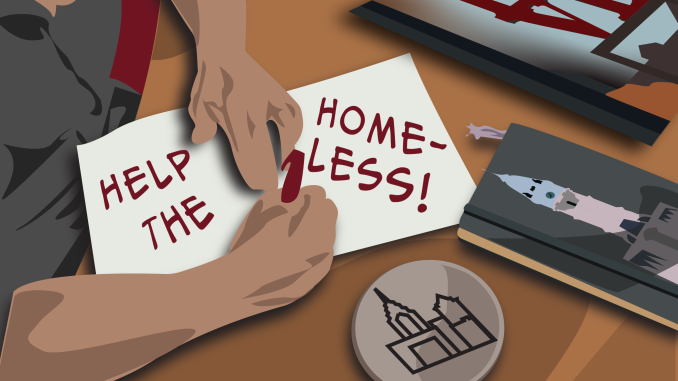
In 2017, I moved from Philadelphia, Pennsylvania, to Raleigh, North Carolina. My mom described the move as an “opportunity for a fresh start.”
While I initially welcomed this fresh start, moving away separated me from seeing my city grow into a safe place full of opportunities for my family.
I read the book “The Hate You Give” by Angie Thomas around this time. The main character’s father, Maverick, empowered me because he wanted to help change his dangerous community, which was something I wanted to do in Philadelphia. His determination to see a better environment became a source of inspiration for me to pursue my dream of helping my city through journalism.
Like Maverick, I grew up in a poor household and became numb to the sound of gunfire. He inspired me to use my own perspective to add to the conversation that would support change.
Since I was a child, I understood a tragic reality: my city is great, but it’s held down by the effects of redlining. This discriminatory practice, which denies services to low-income neighborhoods of color, plays a role in the current wealth gap, contributing to impoverished communities.
I’ve seen poverty through the endless hours my mom worked as an emergency dispatcher. I always woke up too late or went to sleep too early to see her, and sometimes went five full days without speaking to her.
The shootings during the day and the sirens at night taught me about Philadelphia’s violence, reminding me that the worst can happen at anytime. This reality is why my brother carried “protection” and why I was constantly paranoid of every bystander.
In “The Hate You Give,” Maverick understands this reality. When gang members shot at Maverick’s home because he was protecting two people they were looking for, his family took cover and he fired back, reminding me of unpredictable environments in Philadelphia.
Despite Philadelphia’s issues, my love for its culture grew. Philadelphians share a family-like bond that reminds me I shouldn’t give up.
But even with this adoration, the longer I lived in Raleigh, the more my dream of changing Philadelphia seemed to become a distant fairy tale because my new home brought different experiences and opportunities.
Philadelphia was beginning to fade from memory, but when I began preparing for college, I realized I wanted to spend the next four years in my home city and serve my community.
Maverick served his community through his store, where he offered jobs to those who needed them. However, his wife and brother were concerned by his decision to stay in the neighborhood because they believed remaining in an area filled with gang violence limited his family’s safety and overall quality of life.
I see his decision as a strength. I reflect Maverick’s character in my stubbornness, admiration for my roots and persistence in improving my city. He symbolizes hope and inspires me to raise awareness of Philadelphia’s shortcomings and history.
I want my dream to become a reality through journalism. Using my experiences, I write about the true Philadelphian experience: the decaying neighborhoods I pass through during car rides, the sleepless nights I’ve faced due to shootings and police sirens and the paranoia I face in each hour of the day.
I want to grab my community’s attention by telling stories they can empathize with and producing solutions-based journalism that investigates not only the role of redlining but other factors that contribute to the city’s environment.
I want people to see my stories like how my mom saw moving: an “opportunity” for our city to have a “fresh start” with neighborhoods whose fates aren’t decided by redlining, and Philadelphians who are able to live rather than just survive.
Maverick inspired me to work for my dream — a Philadelphia where “the city of brotherly love” isn’t a form of irony.


Be the first to comment